Podcast: Play in new window | Download (Duration: 41:24 — 56.9MB)
Subscribe: Spotify | | More
 What does Rosanne Cash have to do with science or medicine?
What does Rosanne Cash have to do with science or medicine?
Sure, the American pop, folk, country, and roots rock legend isn’t technically a scientist. But it was surprising for us to learn that Rosanne Cash has the soul of one within her, with its arms spread comfortably around her musician and poet souls. When the University of Iowa’s Hancher Auditorium reached out to the College of Medicine to let us know she’d be putting on a concert and might be interested in coming to speak on a panel, we had to dig a little deeper to find out about the connection.
Rosanne was diagnosed in 2007 with Chiari malformation with syringomyelia, a disorder of the skull which puts pressure on the brain and causes the cerebellum to protrude into the spinal canal. It’s an incredibly painful, debilitating problem that is usually diagnosed in children, not in a woman in her 50s. Her doctors gave her all sorts of diagnoses (some with a dose of condescension), until she diagnosed herself. Even then, it took finding the right doctor to believe her to get her on the long journey to recovery. The lessons of her identity and career-threatening condition are profound.
Then, too, there is Rosanne’s curiosity about music and the brain. With MD/PhD student Miranda Schene, M1 Alexa Schmitz and neuroscientist Justin Sipla, PhD she was fully on board for an often trippy exploration of how and why we are creatures of rhythm, the “sorcery” our brains use to fabricate meaning from vibrations in the world around us, and what an openness to shared experiences can do for medical students and doctors and their patients.
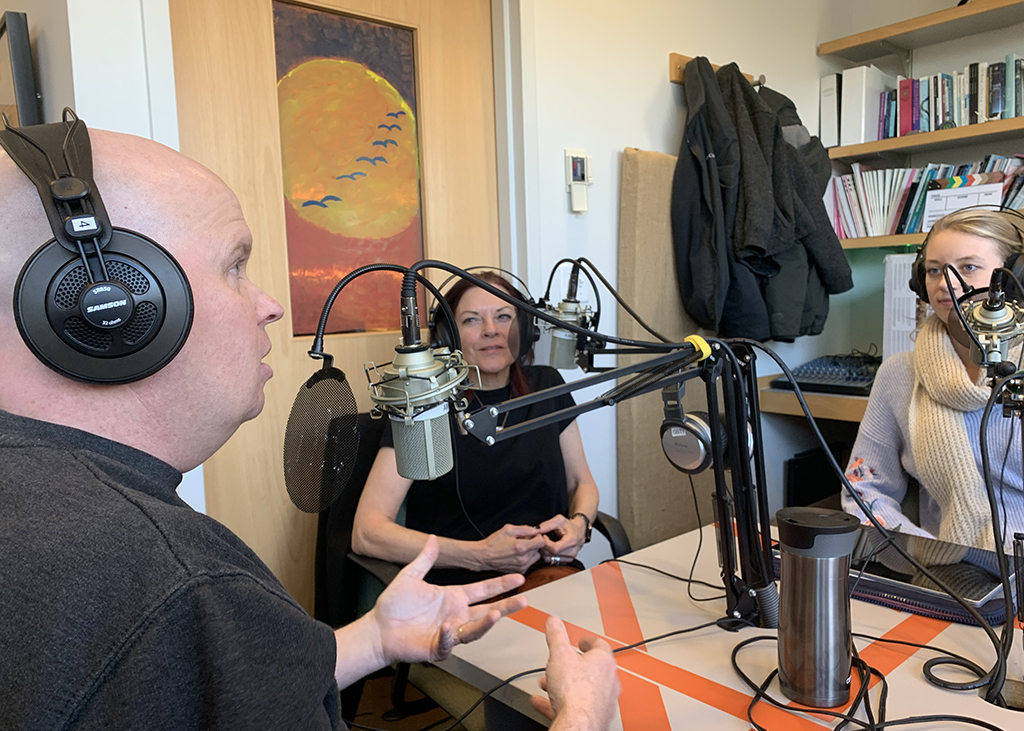 There are other connections to medicine. The link between a performer being on stage for an audience and physicians performing a role for their patients are considerable, and the lessons Rosanne has learned about creating a shared experience between performer and audience are applicable to the relationship between doctors and their patients. But there is also her desire to “keep a beginner’s mind” that every doctor should appreciate–cultivating one’s curiosity and understanding that “insecurity is part of the game” are essential lessons that could keep you from missing something important in patient care.
There are other connections to medicine. The link between a performer being on stage for an audience and physicians performing a role for their patients are considerable, and the lessons Rosanne has learned about creating a shared experience between performer and audience are applicable to the relationship between doctors and their patients. But there is also her desire to “keep a beginner’s mind” that every doctor should appreciate–cultivating one’s curiosity and understanding that “insecurity is part of the game” are essential lessons that could keep you from missing something important in patient care.
Buy Our Merch and Give At The Same Time
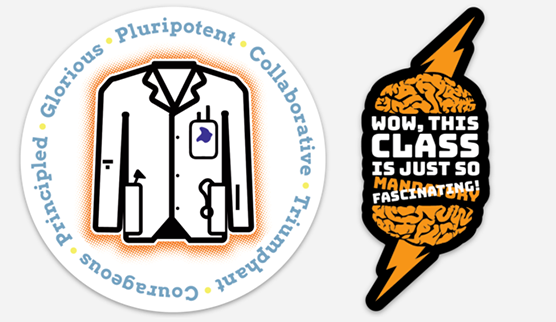
We Want to Hear From You
Never forget that we are always excited to answer our listeners’ questions or take their suggestions. Call us at 347-SHORTCT anytime, or email theshortcoats@gmail.com.
Continue reading Singer, Songwriter, Scientist: Rosanne Cash →
 Turkish listener Ali would like to come to the US for residency and to practice medicine someday, so he wrote to us to ask us what we knew about how that works. Co-host Nadia Wahba happened to visit Turkey a while back and blew our minds by letting us in on a little secret: that in the city she visited, there are public parks full of well-cared-for pets you can visit and play with.
Turkish listener Ali would like to come to the US for residency and to practice medicine someday, so he wrote to us to ask us what we knew about how that works. Co-host Nadia Wahba happened to visit Turkey a while back and blew our minds by letting us in on a little secret: that in the city she visited, there are public parks full of well-cared-for pets you can visit and play with.


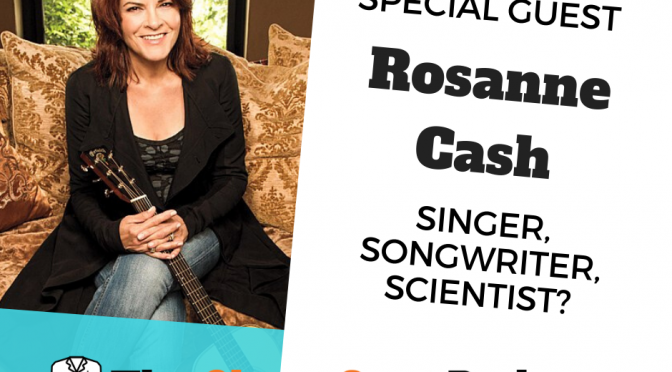



 Listener Salutes McGee (not her real name) is planning on med school after her tour of duty. What hard-won skills, she wonders, will transfer to medicine? And Krystal writes in with her med school debt worries. Will she need to plan to pay off $600,000 all in? No need to fear, Krystal and Salutes, because M4s Liza Mann, Derek Bradley, Jessie White, and M2 Abby Fife are here to soothe your fears and answer your questions.
Listener Salutes McGee (not her real name) is planning on med school after her tour of duty. What hard-won skills, she wonders, will transfer to medicine? And Krystal writes in with her med school debt worries. Will she need to plan to pay off $600,000 all in? No need to fear, Krystal and Salutes, because M4s Liza Mann, Derek Bradley, Jessie White, and M2 Abby Fife are here to soothe your fears and answer your questions.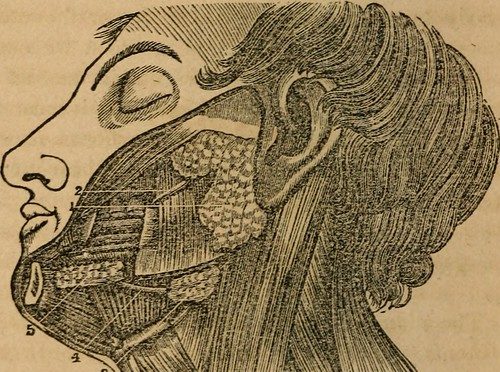
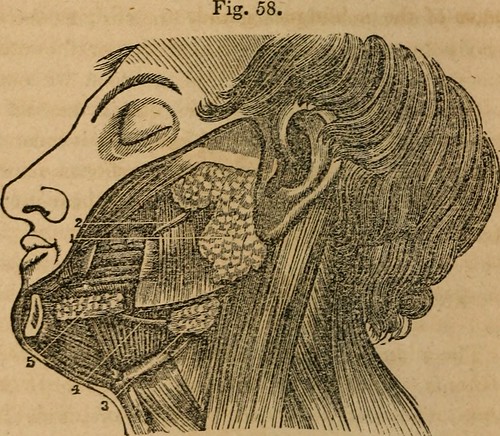






 [Happy Holidays! Dave is on vacation, but here’s a re-run to tide you over. We’ll be back with new episodes starting 1/16]
[Happy Holidays! Dave is on vacation, but here’s a re-run to tide you over. We’ll be back with new episodes starting 1/16] 


 A question from listener Blake–do we use Anki or Brainscape for studying–led to a discussion of the various tools and techniques Aline Sandouk (MD/PhD student), Nick Lind, Madeline Cusimano, and Mason LaMarche (all M2s) use to shove medical knowledge into their brains.
A question from listener Blake–do we use Anki or Brainscape for studying–led to a discussion of the various tools and techniques Aline Sandouk (MD/PhD student), Nick Lind, Madeline Cusimano, and Mason LaMarche (all M2s) use to shove medical knowledge into their brains.